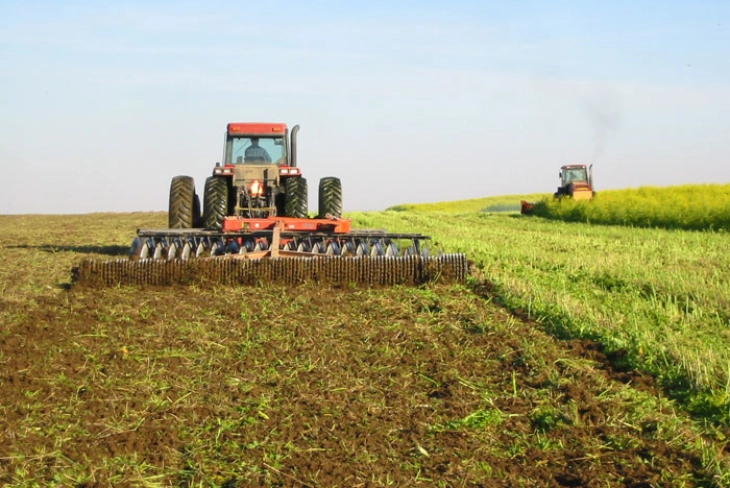New EU and FAO project on land consolidation: Farms should be competitive and resilient to future shocks

Skopje, 3 November 2022 (MIA) – The multiple crisis caused by climate change, the COVID-19 pandemic and the war in Ukraine have once again highlighted the importance of small farmers, but also exposed their weaknesses – limited productivity and low income due to inefficient land structure, excessive fragmentation and outdated agricultural infrastructure. Food production is back in focus.
Small family farms are the backbone of Macedonian agriculture and they must be competitive and resistant to future shocks, said Thursday’s event on a new project of the European Union and the Food and Agriculture Organization of the United Nations (FAO) towards land consolidation.
“Good structure of the land enables greater efficiency and profitability of production, as well as opportunity for farmers to invest in modernization and greater production. It also affects the improvement of the standard of living and the possibility of development of rural areas, which can also attract young people to the sector,” said Minister of Agriculture, Forestry and Water Economy, Ljupcho Nikolovski.
The government, Nikolovski noted, recognized the need for land consolidation in order to solve the excessive fragmentation and small area of agricultural holdings, as the main structural issue for the progress of Macedonian agriculture.
“Today we are talking about further developed plans for consolidation of agricultural land in nine rural areas: Konche, Egri, Logovardi, Optichari, Trn, Dabjani, Kozhle, Sokolarci and Spanchevo. In addition, agricultural infrastructure has been completely built in Egri, and this process will continue in the other areas as well,” Nikolovski pointed out, commenting on results of the project "Mainstreaming of the National Land Consolidation Programme (MAINLAND)”, which was implemented for 68 months, from March 2017 to November 2022.
The main objective of the project worth EUR 2.86 million, was to resolve the issue of land fragmentation and small farm sizes, with the ultimate goal to increase the competitiveness of production, enhance rural livelihoods and improve sustainability in the use of natural resources.
As part of MAINLAND, the structure of 4,700 ha agricultural land is improved by reducing land fragmentation and facilitating farm enlargement. The benefits are multi-fold for 6,267 landowners and farmers, their families and communities. In addition to land consolidation, the project contributed to improved rural infrastructure and land parcels, which, in turn, enabled application of modern agricultural practices, as well as introduction of modern mechanization and technologies.
“To promote land consolidation, the EU approved a new project "Enhancing Land Consolidation in North Macedonia", which is co-funded by FAO. The new project is worth EUR 1.2 million and aims to continue the success story of MAINLAND. It will focus on improving the national policy, institutional and regulatory framework for consolidation, including the development of a new national consolidation strategy during the period 2022-2030 with an action plan and full implementation of projects in two consolidation areas: Dabjani (Municipality of Dolneni) and Chiflik (Municipality of Cheshinovo-Obleshevo), combined with the construction of agricultural infrastructure,” said the Minister.
According to Nabil Gangi, De facto Head of Food and Agriculture Organisation in North Macedonia, MAINLAND has positioned North Macedonia as a leader in the region for implementing such complex structural land reforms.
“Together we improved national legislation on consolidation based on international best practices and strengthened the technical and administrative capacities of the Agriculture Ministry, key agencies and private surveying companies for successful and sustainable management and implementation of the National Land Consolidation Programme,” said Gangi.
Head of Delegation of the European Union, Ambassador David Geer, commented on the importance of land resources.
“Caring for the land is our priority. Its use will play a key role in Europe's ambitious green plans. Sustainable land systems are at the heart of the Green Deal which means producing and meeting needs at minimal cost. The goal is a 55 percent reduction in greenhouse gases by 2030, as well as a complete reduction by 2050,” Geer said.
The new EU-funded project will be implemented for 42 months, from August 2022 to January 2026.







